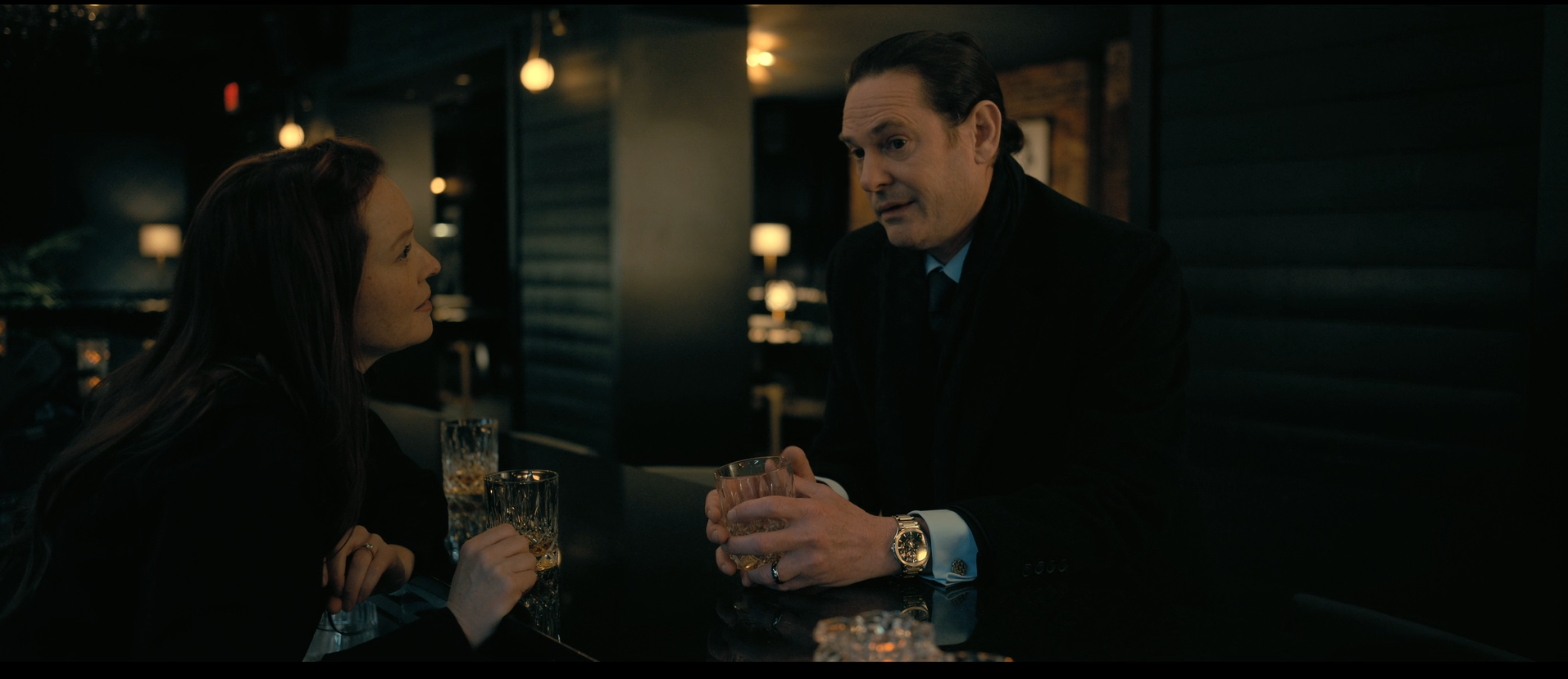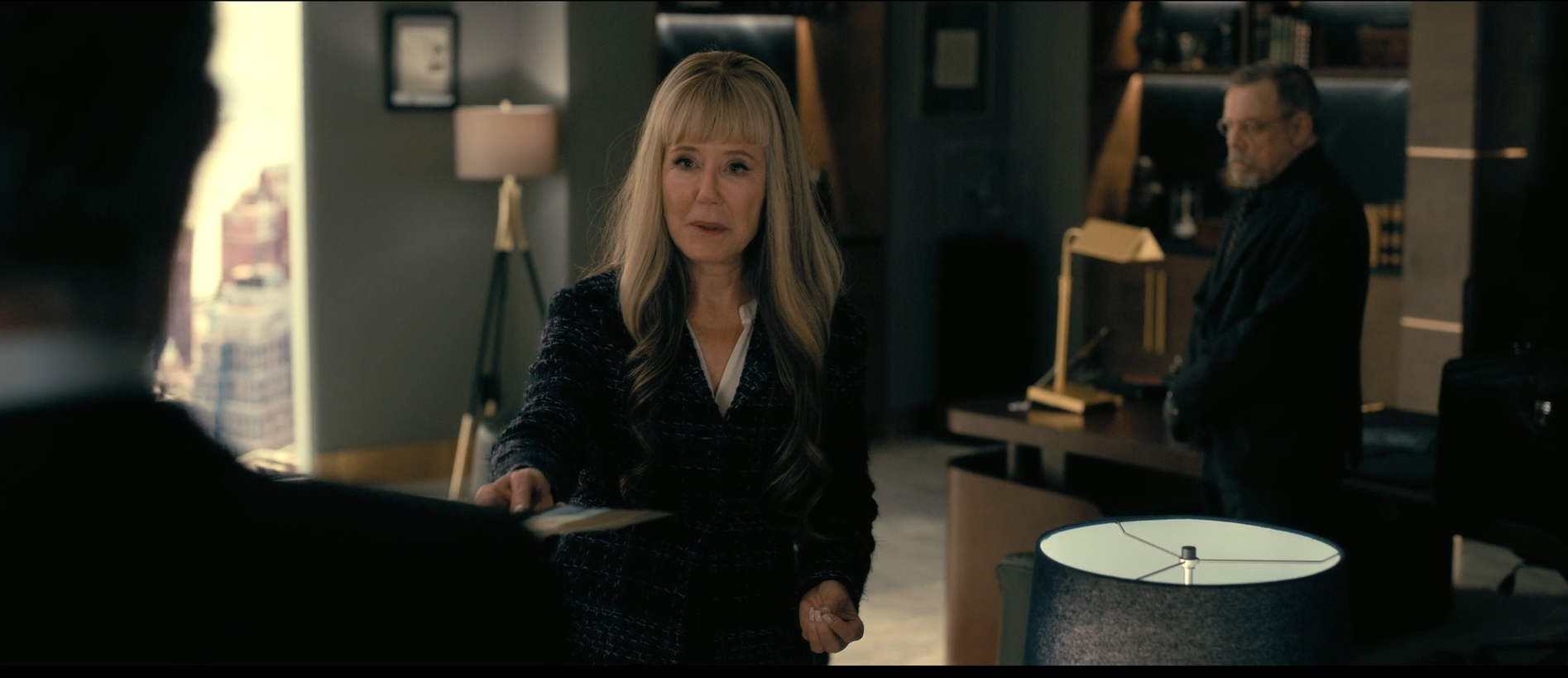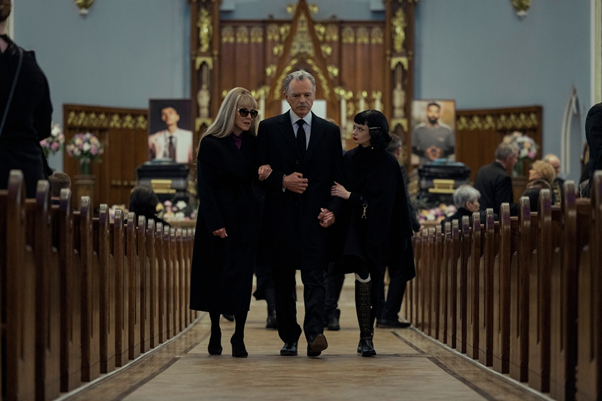In Episode 5 of ‘The Fall of the House of Usher,’ we are transported back in time as Roderick unravels a fateful New Year’s Eve. He engages in a philosophical exchange with Verna about ravens as harbingers of disaster, showcasing their opposing beliefs. As police sirens wail, the impending catastrophe looms over Roderick and Madeline. Meanwhile, Madeline converses with the bartender, and Verna poses a profound question to her – fame or fortune? Their discussion unveils Madeline’s desire for eternal life if wealth were within her grasp.
Returning to the present, Roderick’s marriage to Annabel(Katie Parker) becomes a subject of inquiry. He cryptically promises to reveal all at the right moment. The narrative shifts to a funeral service for Napoleon, Camille, and Prospero, attended by the surviving Ushers. Roderick’s hallucinations resurface, haunting him with a jester and a charred apparition of Prospero. Disturbed, he is led out by Madeline and Juno(Ruth Codd), while the parents observe.

In a separate interaction, Victorine confronts Frederick and Tamerlane, appalled by their arrogance. Disheartened, she departs. At the hospital, Frederick passionately insists on taking Morella home, swaying the doctor’s decision. He then arranges for Lenore to ensure her comfort. The rift between Victorine and Alessandra deepens, leading to a painful estrangement. Victorine’s desperate voicemails reflect her plea for reconciliation and a plea to avoid legal action. Verna, disguised as a patient, visits Victorine, who struggles to focus amidst rhythmic ticking and pulsating beats.
Verna asserts her readiness for the operation, contingent on Alessandra’s approval, yet Victorine’s attempts to reach her remain futile. The judge and attorney Auguste face Pym’s request for trial postponement due to recent Usher family losses. Despite Auguste’s objection, the judge concedes to Pym’s plea. In the present, Roderick probes Auguste about the informant’s identity. Auguste confesses to fabricating the informant, prompting Roderick to empathize with the burden of guilt. Another hallucination ensues, depicting blood in place of Auguste’s heart.

The episode’s nod to “The Tell-Tale Heart” is executed with eerie precision. Madeline’s reference to the boss as “The Old Man” echoes the original tale, as do her observations of his eyes, hinting at an underlying malevolence. The incorporation of the iconic ticking and pulsating sounds from the story serves to heighten the atmosphere of foreboding and guilt. Blood-stained hands and the haunting vision of a burned Prospero evoke powerful imagery, reminiscent of Poe’s macabre tales. These visuals infuse the episode with a chilling intensity, mirroring the psychological unraveling of the characters. The use of ravens as omens of disaster, a motif derived from Poe’s writings, adds a layer of foreboding symbolism.
The juxtaposition of opposing beliefs between Roderick and Verna encapsulates the existential themes explored in Poe’s works. Victorine’s descent into madness, exacerbated by the relentless ticking and pulsing, is a testament to the show’s ability to translate Poe’s psychological horrors onto the screen. The portrayal of her guilt-stricken psychosis is both unsettling and mesmerizing. The episode seamlessly navigates between past and present, providing crucial insights into the characters’ motivations and alliances. The intertwining narratives serve to enrich the storyline, offering a deeper understanding of the Usher family’s complexities.




